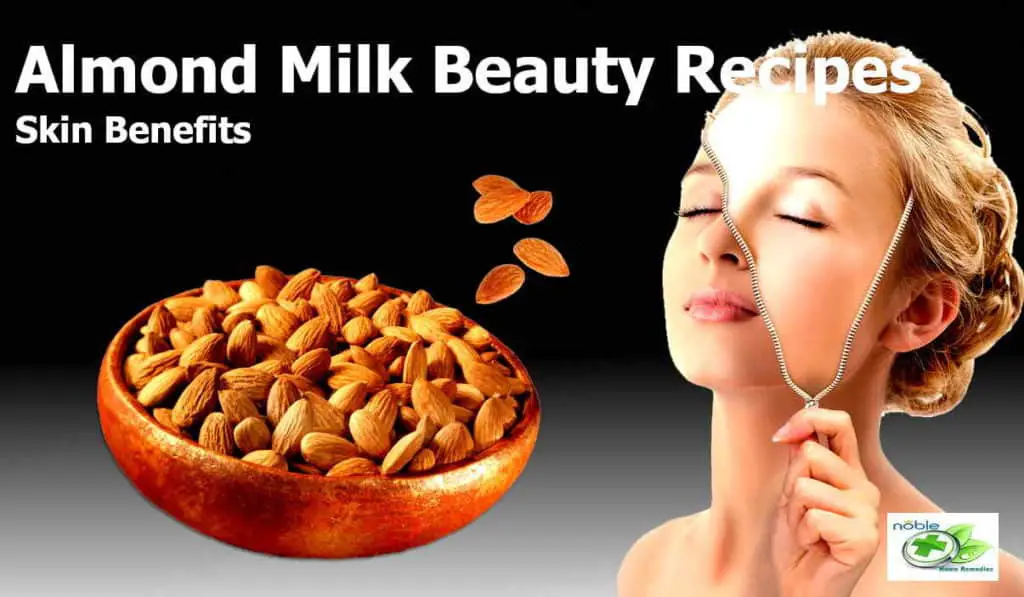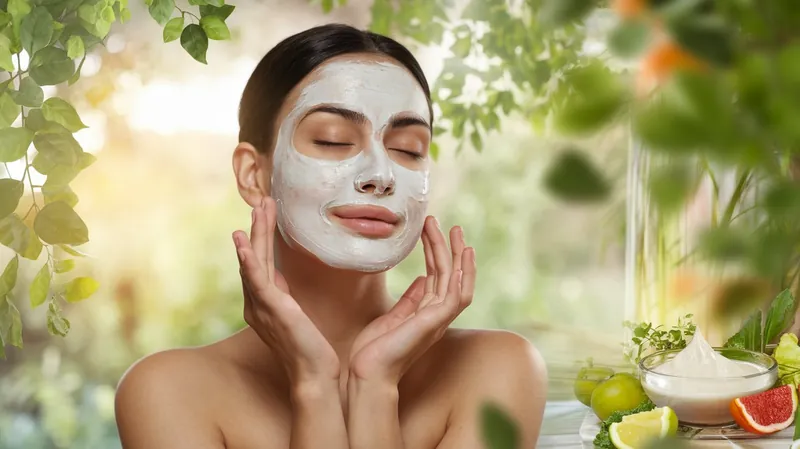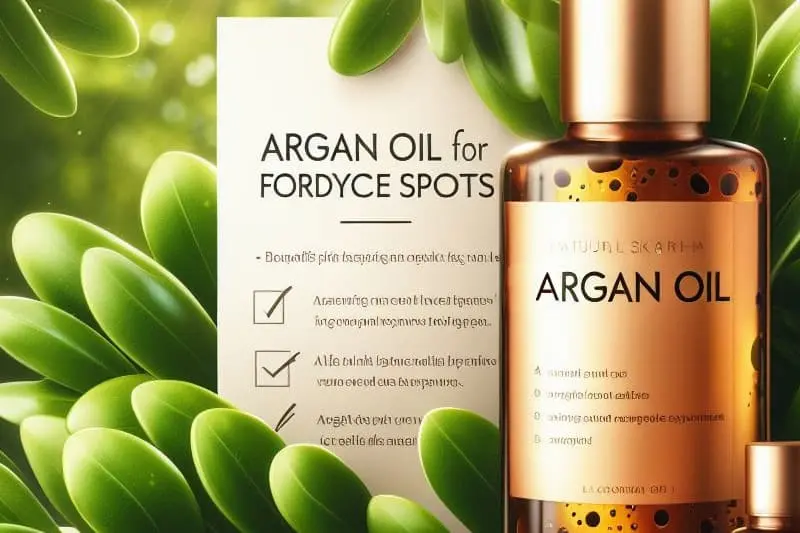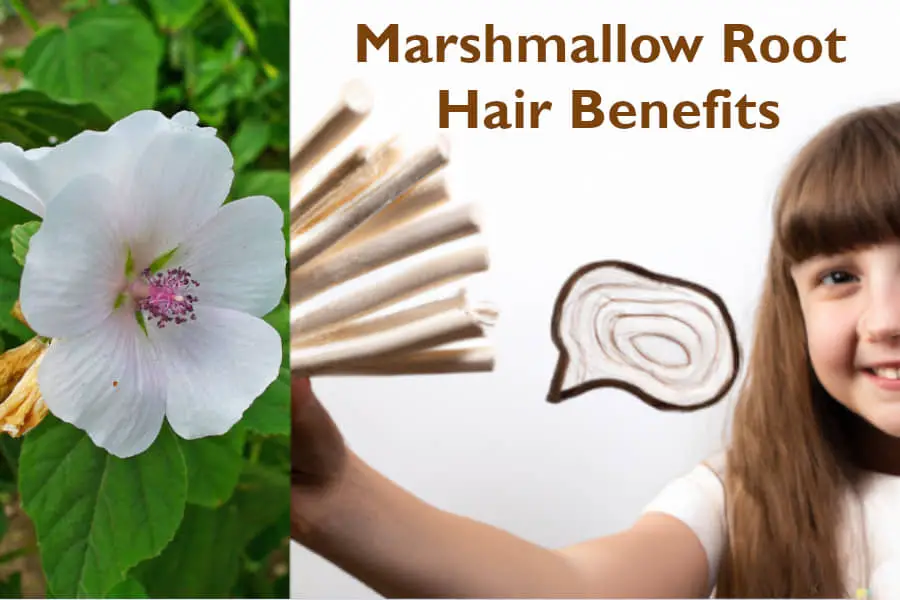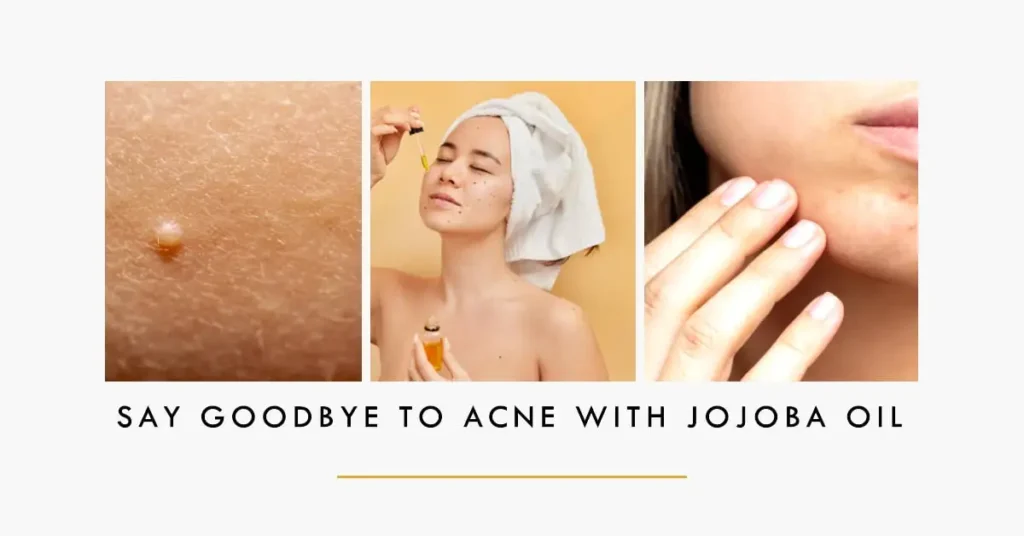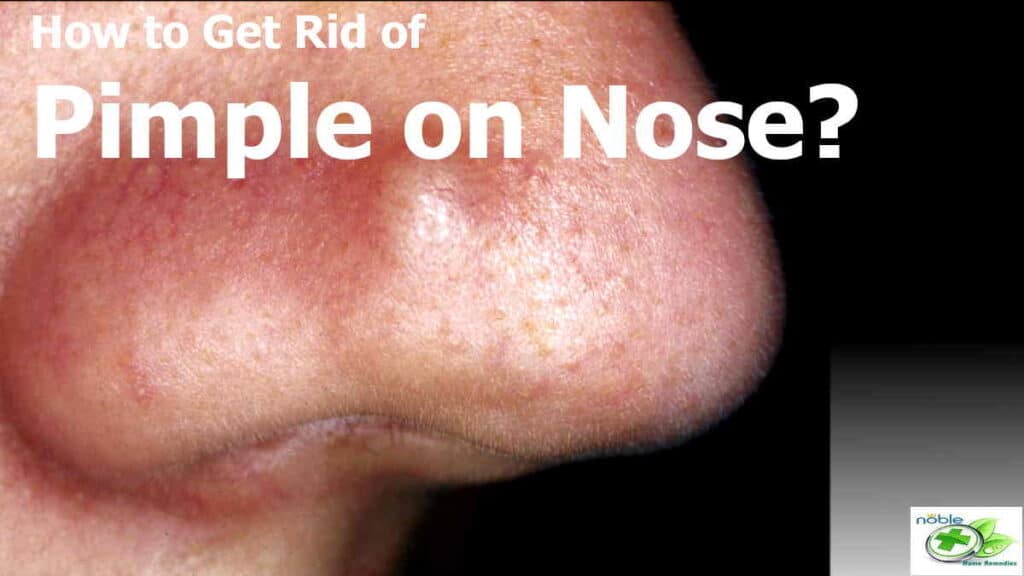Acne free diet plan for 30 days to clearer skin: Transformed
Are you tired of battling those pesky breakouts and frustrating blemishes? If you’re a youngster facing the all-too-familiar struggle of acne, you’re not alone. Acne can be a real confidence crusher, affecting how we feel about ourselves and how we present ourselves to the world. The quest for clearer, healthier skin is not just about vanity. It’s about boosting self-esteem and reclaiming your self-confidence.
Acne is more than just a skin care concern. It can significantly impact your confidence and self-esteem. The mirror becomes a source of frustration, and those pesky blemishes can take a toll on your overall sense of well-being. But here’s the good news. There’s a way to regain control and achieve the clear, radiant skin you’ve always dreamed of: the “Acne Free Diet Plan for 30 Days to Clearer Skin.”
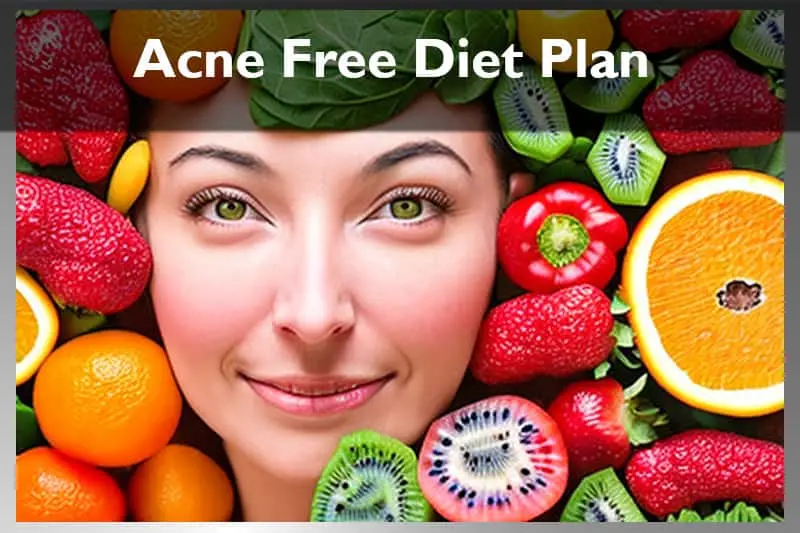
In this blog post, we’re going to combat acne by exploring the powerful link between what you eat and the condition of your skin. We’ll guide you through a 30-day journey that not only addresses your acne but also boosts your self-esteem and gives you the confidence to face the world with a clear and glowing complexion.
So, if you’re ready to break free from the cycle of acne and take control of your skin’s destiny, read on. We uncover the secrets of the Acne Free Diet Plan and its transformative effects on your skin and self-esteem.
Understanding Acne
Acne, often referred to as the bane of adolescence, is a common skin condition that affects youngsters and adults alike. It’s characterized by the presence of pimples, blackheads, whiteheads, and sometimes even painful cystic acne on the skin, primarily on the face, nose, lips, chest, and back. But what exactly is acne, and why does it seem to have an affinity for youthful skin?
What is Acne?

Acne, at its core, is a skin disorder that occurs when hair follicles become clogged with oil and dead skin cells. This combination creates an ideal breeding ground for the growth of bacteria, mainly Propionibacterium acne. When these bacteria multiply, it triggers inflammation, leading to the formation of those infamous pimples and blemishes.
Common Causes of Acne
Several factors contribute to the development of acne, making it a complex and multifaceted condition. While genetics and hormonal fluctuations play a significant role, here are some common causes of acne in youngsters:
- Hormonal Changes: Adolescence is a time of hormonal upheaval. An increase in androgens, a type of hormone, leads to increased sebum (oil) production, which can clog pores and result in acne breakouts.
- Clogged Pores: Dead skin cells and excess oil can easily clog hair follicles, setting the stage for acne. This often occurs due to poor skincare habits or the use of comedogenic (pore-clogging) skincare products.
- Diet: While the relationship between diet and acne isn’t fully understood, certain foods, especially those high in sugar and refined carbohydrates, may contribute to acne development.
- Stress: Stress triggers the release of cortisol, a hormone that can increase oil production and exacerbate acne.
- Bacterial Overgrowth: The bacteria Propionibacterium acnes, which naturally resides on our skin, can multiply rapidly in clogged pores, leading to inflammation.
Now, beyond the physical discomfort, it’s crucial to acknowledge the profound psychological impact acne can have on youngsters. The visible nature of acne often leads to feelings of self-consciousness, embarrassment, and low self-esteem.
Youngsters dealing with acne may avoid social situations, cover their faces with makeup, or even withdraw from activities they once enjoyed. The emotional toll can be just as challenging as the physical aspects of this condition.
Understanding the causes and emotional impact of acne is the first step toward finding a solution. That’s where our “Acne free diet plan for 30 days to clearer skin” comes into play, offering you a proactive approach to regain your confidence and transform your skin.
The Role of Diet in Acne
When it comes to achieving clearer skin, the old adage “you are what you eat” couldn’t be more accurate. The connection between diet and skin health is profound, and understanding how certain foods can either trigger or alleviate acne is a crucial step in your journey toward an “Acne Free Diet Plan for 30 Days to Clearer Skin.”
Understanding the Acne-Food Connection
Acne is not solely a surface-level issue; it often reflects what’s happening within your body. The foods you consume play a significant role in regulating hormones, reducing inflammation, and supporting the overall health of your skin.
Foods That Can Trigger Acne
Let’s start by identifying the culprits, the foods that can exacerbate acne.

High-glycemic foods, such as sugary snacks, white bread, and processed cereals, can lead to rapid spikes in blood sugar levels. This, in turn, triggers a surge in insulin production and the release of certain hormones, like insulin-like growth factor 1 (IGF-1).
These hormonal fluctuations can stimulate the sebaceous glands in your skin, leading to increased oil production, clogged pores, and ultimately, acne breakouts.
Dairy products have also been linked to acne in some individuals. Milk, in particular, contains hormones that can influence the skin’s oil production and contribute to the development of acne.
Foods That Can Alleviate Acne
Now, let’s shift our focus to the foods that can be your allies in the fight against acne. Incorporating a variety of nutrient-rich, whole foods into your diet can help maintain stable blood sugar levels, reduce inflammation, and support your skin’s healing process.

Antioxidant-Rich Fruits and Vegetables: Foods like berries, spinach, kale, and sweet potatoes are packed with antioxidants that combat free radicals, reduce inflammation, and promote healthy skin.
Omega-3 Fatty Acids: Fatty fish, flaxseeds, and walnuts are excellent sources of omega-3 fatty acids, which have anti-inflammatory properties and can help calm irritated skin.
Probiotics: Yogurt, kefir, and fermented foods contain probiotics that support gut health. A healthy gut microbiome is essential for proper nutrient absorption and may indirectly influence skin health.
Zinc: This mineral plays a role in skin health and can be found in foods like lean meats, beans, and nuts.
Vitamin A: Foods rich in vitamin A, such as carrots, sweet potatoes, and spinach, can help regulate skin cell turnover and reduce the likelihood of clogged pores.
So, by making mindful choices and embracing a balanced diet, you can take significant strides toward achieving the clear, radiant skin you’ve been longing for.
Creating Your 30-Day Acne Free Diet Plan
Embarking on a journey toward clearer skin is an exciting endeavor, but it’s important to do it wisely and safely.
Before we delve into the specifics of our “Acne free diet plan for 30 days to clearer skin,” remember that consulting a healthcare professional is the first crucial step. They can provide personalized guidance to ensure that any dietary changes are suitable for your individual health needs.
Now, let’s break down your 30-day plan into manageable weeks, making it easier to follow and implement. Each week focuses on specific dietary aspects that will contribute to your journey to clearer skin.
Week 1: Detoxify and Hydrate
In the first week of your Acne Free Diet Plan, the focus is on detoxifying your body and ensuring proper hydration. We’ll explore the concept of detoxifying foods for the skin, introduce you to some key ingredients, and emphasize the vital role of staying hydrated in maintaining clear and healthy skin.
Detoxifying Foods for Skin
Detoxification is the process of eliminating toxins and impurities from the body. When it comes to your skin, this process can help reduce inflammation, unclog pores, and support overall skin health. Incorporating the right foods into your diet can aid in this detoxification process.
Here are some detoxifying foods for your skin that you should consider adding to your meals:
- Leafy Greens: Spinach, kale, and Swiss chard are packed with chlorophyll, which helps detoxify the body and promote clear skin.
- Citrus Fruits: Lemons, oranges, and grapefruits are rich in vitamin C, which supports the production of collagen, a protein essential for skin elasticity.
- Berries: Blueberries, strawberries, and raspberries are loaded with antioxidants that combat free radicals and reduce skin inflammation.
- Green Tea: This beverage is known for its high levels of catechins, which have anti-inflammatory and antioxidant properties, benefiting your skin.
- Turmeric: This spice contains curcumin, which has powerful anti-inflammatory and antioxidant effects, potentially aiding in acne reduction.
Hydration Is Key
In addition to incorporating detoxifying foods, it’s crucial to prioritize hydration. Proper hydration ensures that your body can efficiently eliminate toxins and maintain the elasticity and suppleness of your skin.
Here are some tips to keep in mind:
- Aim to drink at least 8 glasses of water per day.
- Herbal teas, such as chamomile and mint, can contribute to your daily fluid intake.
- Limit your consumption of sugary and caffeinated beverages, as they can lead to dehydration.
By detoxifying your body with the right foods and staying well-hydrated, you’re setting a solid foundation for your clearer skin.
Week 2: Anti-Inflammatory Foods
Welcome to Week 2 of your “Acne Free Diet Plan for 30 Days to Clearer Skin.” For the first week, we discussed the importance of detoxifying foods and staying hydrated to kickstart the path to clearer skin. Now, in Week 2, we’ll focus on the role of anti-inflammatory foods in your diet and how they can significantly impact your battle against acne.
Understanding the Anti-Inflammatory Diet for Acne
Inflammation plays a pivotal role in the development and persistence of acne. When your body experiences inflammation, it triggers a cascade of events, including the production of sebum (skin oil) and the proliferation of acne-causing bacteria. This can lead to clogged pores, inflammation within the pores, and those dreaded breakouts.
To combat this, we introduce the concept of an anti-inflammatory diet. An anti-inflammatory diet is rich in foods that can help reduce inflammation in the body, and in turn, improve the condition of your skin.
Foods That Reduce Inflammation and Promote Skin Health
- Fatty Fish: Salmon, mackerel, and sardines are excellent sources of omega-3 fatty acids, which have potent anti-inflammatory properties. These healthy fats can help calm the skin and reduce the redness and swelling associated with acne.
- Berries: Blueberries, strawberries, and blackberries are packed with antioxidants, including anthocyanins, which have anti-inflammatory effects. These antioxidants combat free radicals and help protect skin cells.
- Nuts and Seeds: Almonds, walnuts, flaxseeds, and chia seeds contain inflammation-fighting nutrients like vitamin E and alpha-linolenic acid (ALA).
- Turmeric: Curcumin, the active compound in turmeric, has been shown to have powerful anti-inflammatory properties. You can incorporate turmeric into your diet by adding it to curries, smoothies, or warm teas.
- Leafy Greens: Spinach, kale, and Swiss chard are rich in vitamins and minerals that can reduce inflammation. They’re also high in fiber, which can support gut health, a crucial factor in managing acne.
By incorporating anti-inflammatory foods into your diet, you can help soothe inflammation, regulate sebum production, and reduce the frequency and severity of acne breakouts.
As you embark on Week 2 of your Acne Free Diet Plan, keep in mind that consistency is key. By consistently choosing anti-inflammatory foods and adopting a balanced approach to nutrition, you’re taking a significant step toward achieving clearer and healthier skin.
Week 3: Nutrient-Rich Foods
As we progress through your “Acne Free Diet Plan for 30 Days to Clearer Skin,” Week 3 is a crucial phase where we look into the importance of nutrient-rich foods in your diet. This week’s focus is on nourishing your skin from the inside out with a nutrient-rich diet tailored to support a healthier complexion.
Nutrient-rich foods provide your body with the essential vitamins and minerals it needs to function optimally. When it comes to your skin, these nutrients play a pivotal role in promoting its health, resilience, and radiance.
Foods Rich in Vitamins and Minerals Beneficial for the Skin:
- Vitamin A: This vitamin is essential for skin health as it supports skin cell turnover and repair. Foods like sweet potatoes, carrots, and leafy greens are excellent sources.
- Vitamin C: Vitamin C is a powerful antioxidant that aids in collagen production and protects the skin from free radical damage. Citrus fruits, strawberries, and bell peppers are packed with vitamin C.
- Vitamin E: Known for its antioxidant properties, vitamin E helps protect the skin from UV damage and premature aging. Nuts, seeds, and spinach are great sources of this nutrient.
- Zinc: Zinc is crucial for wound healing and reducing inflammation. Foods like lean meats, dairy, and legumes are rich in zinc.
- Selenium: Selenium is another antioxidant that helps protect the skin from damage caused by UV rays. You can find it in Brazil nuts, whole grains, and fish.
The Role of Antioxidants:
Antioxidants are your skin’s best friends. They neutralize harmful free radicals that can damage skin cells and accelerate aging. By including foods rich in antioxidants, you’re providing your skin with the defense it needs to stay youthful and healthy.
- Berries: Blueberries, raspberries, and blackberries are antioxidant powerhouses.
- Green Tea: Packed with catechins, green tea is not only anti-inflammatory but also a potent antioxidant.
- Nuts and Seeds: Almonds, walnuts, and flaxseeds contain antioxidants that protect your skin.
- Dark Chocolate: In moderation, dark chocolate with a high cocoa content can be a delightful source of antioxidants.
By incorporating these nutrient-rich foods into your daily diet, you’re giving your skin the essential building blocks it needs to repair, regenerate, and glow with vitality. These foods not only support skin health but also contribute to your overall well-being.
Stay tuned for Week 4, where we’ll explore the role of probiotics and gut-friendly foods in your Acne Free Diet Plan. Remember, a holistic approach to nutrition is key to achieving clearer and healthier skin.
Week 4: Role of Probiotics and Gut-Friendly Foods
As we continue on your journey to achieving an “Acne Free Diet Plan for 30 Days to Clearer Skin,” we reach a pivotal point in Week 4, where we explore the role of probiotics and gut-friendly foods in promoting healthy and radiant skin.
A balanced and well-functioning gut can have a profound impact on your overall well-being, including the condition of your skin.
Understanding the Benefits of Probiotics and Gut-Friendly Foods
Your gut is home to trillions of microorganisms that make up your gut microbiome. These microorganisms play a vital role in digestion and nutrient absorption.
A well-balanced gut microbiome can help reduce inflammation throughout your body, including your skin. When your gut is in good shape, it’s better equipped to absorb essential nutrients like vitamins and minerals, which are vital for skin health.
Additionally, a healthy gut can support your immune system, preventing it from overreacting to potential acne triggers. This can lead to fewer breakouts and less skin irritation.
Foods Rich in Probiotics and Gut-Friendly Foods:
- Yogurt: Yogurt is a well-known source of probiotics, including strains like Lactobacillus and Bifidobacterium. These bacteria can help regulate your gut microbiome and reduce inflammation.
- Kefir: Kefir is a fermented dairy product rich in probiotics. It’s a great option for those who may be lactose intolerant, as the fermentation process reduces lactose content.
- Sauerkraut: This fermented cabbage dish is rich in beneficial bacteria and is a staple in many probiotic-rich diets.
- Kimchi: Kimchi is a Korean dish made from fermented vegetables, primarily cabbage and radishes. It’s not only delicious but also loaded with probiotics.
- Miso: Miso is a traditional Japanese seasoning made from fermented soybeans. It’s a versatile ingredient that can be used in soups, marinades, and dressings.
Incorporating probiotics and gut-friendly foods into your Acne Free Diet Plan can help restore and maintain the balance of your gut microbiome, ultimately contributing to clearer and healthier skin.
Lifestyle Factors: The Pillars of Clearer Skin
In our chase for an “Acne Free Diet Plan for 30 Days to Clearer Skin,” we understood the power of nutrition, explored detoxification, and embraced gut-friendly foods.
However, achieving excellence in radiant skin goes beyond what’s on your plate. It’s about cultivating a holistic approach to your lifestyle. Let us learn the significance of proper sleep, stress management, and exercise, which are the pillars of clearer skin.
The Impact of Lifestyle on Skin Health
Proper Sleep: The Skin’s Nightly Rejuvenation
A good night’s sleep is more than just a chance to recharge; it’s a crucial time for your skin to rejuvenate and repair. During deep sleep, your body produces collagen, a protein essential for skin elasticity and firmness. Skimping on sleep can lead to increased stress and inflammation, both of which can trigger acne breakouts. Aim for 7-9 hours of quality sleep each night to support your skin’s natural healing processes.
Stress Management: The Link Between Stress and Acne
Stress and acne are closely connected. When you’re under stress, your body produces hormones like cortisol, which can stimulate oil production and inflammation in the skin. This can result in clogged pores and breakouts. Incorporate stress management techniques into your daily routine, such as mindfulness meditation, deep breathing exercises, or yoga, to keep your stress levels in check and your skin clearer.
Exercise: A Boost for Skin Health
Regular physical activity not only benefits your overall health but can also contribute to clearer skin. Exercise increases blood circulation, which delivers more oxygen and nutrients to your skin cells, promoting a healthy complexion. Additionally, sweating during exercise helps to unclog pores and flush out toxins. Aim for at least 150 minutes of moderate-intensity exercise per week to support your skin’s health.
Balancing Lifestyle and Diet for Clearer Skin
While adopting an acne-free diet plan is crucial, don’t overlook the lifestyle factors that can make or break your journey to clearer skin.
Prioritize proper sleep, stress management, and regular exercise alongside your dietary choices. These elements work in harmony to maintain hormonal balance, reduce inflammation, and enhance your overall well-being.
Additional Tips and Precautions

Congratulations on embarking on your “Acne Free Diet Plan for 30 Days to Clearer Skin” journey! You’ve learned about the power of nutrition, the importance of lifestyle factors, and how to nourish your skin from within. As you wrap up your 30-day plan, let’s explore some additional tips and precautions to help you maintain and enhance your clearer skin.
Consistency is Key: Maintaining clearer skin is a long-term commitment. It’s essential to stay consistent with the healthy habits you’ve adopted. Continue to make mindful food choices, prioritize sleep, manage stress, and engage in regular physical activity. Consistency will help you sustain the results you’ve achieved.
Stay Mindful of Your Diet: Continue your focus on nutrient-rich foods, limit your consumption of sugary and high-glycemic foods, and explore dairy alternatives if dairy triggers acne for you. Pay attention to how your skin responds to different foods and adjust your diet accordingly.
Develop a Skincare Routine: A well-rounded skincare routine is a valuable addition to your acne-free journey. Invest in high-quality skincare products suited to your skin type. Your routine should include cleansing, moisturizing, and sun protection with a broad-spectrum sunscreen. Consult a dermatologist for personalized skincare recommendations if needed.
Keep Hydrated: Hydration is essential for skin health. Make sure to continue drinking an adequate amount of water each day. Staying hydrated helps maintain skin elasticity and supports overall well-being.
Avoid Picking and Squeezing: Resist the temptation to pick, pop, or squeeze acne blemishes. These actions can worsen inflammation, cause scarring, and lead to more breakouts.
Protect Your Skin from the Sun: UV rays can exacerbate skin conditions like acne and contribute to premature aging. Continue to use sunscreen with at least SPF 30 daily, even on cloudy days. Additionally, wear protective clothing and sunglasses when outdoors for extended periods.
Seek Professional Advice: If your acne persists or worsens despite your efforts, consider consulting a dermatologist. They can provide expert guidance, recommend treatments tailored to your skin type, and address any underlying skin issues.
Unmasking Acne: The Definitive Guide to Clear Skin
If you want to go one level up, here is an “Unmasking Acne” Guide you should own. Empower yourself with the knowledge to achieve clear skin from within using dietary, lifestyle, and supplement strategies that are backed by decades of clinical research.
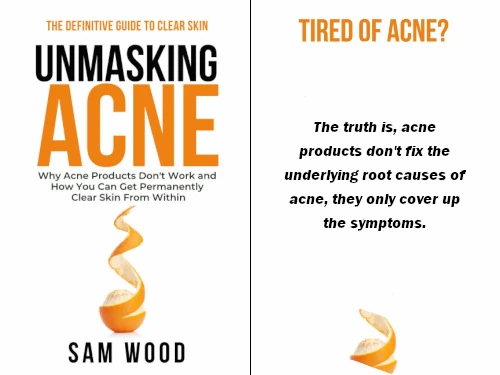
Takeaway: Achieving Clearer Skin Through Your 30-Day Acne-Free Diet Plan
In your quest for clearer, healthier skin, you have a transformative journey through our “Acne Free Diet Plan for 30 Days to Clearer Skin.” We have explored the powerful connection between diet, lifestyle, and the condition of your skin. Let’s recap the key takeaways from your 30-day journey:
Diet Matters: What you eat plays a significant role in the health of your skin. Focus on nutrient-rich foods, reduce high-glycemic and dairy products, and incorporate anti-inflammatory and gut-friendly options into your meals.
Holistic Approach: Achieving clearer skin goes beyond just your diet. Prioritize proper sleep, stress management, regular exercise, and maintaining good hydration for overall skin health.
Skincare Routine: Establish a consistent skincare routine tailored to your skin type. Cleansing, moisturizing, sun protection, and avoiding harsh products are essential.
Sun Protection: Protect your skin from harmful UV rays with sunscreen, protective clothing, and sunglasses, as sun damage can worsen acne and premature aging.
Avoid Picking: Resist the urge to pick or squeeze acne blemishes to prevent scarring and further breakouts.
Consult a Dermatologist: If acne persists or worsens, seek professional advice from a dermatologist. They can provide personalized guidance and treatments tailored to your unique skin needs.
While our 30-day plan provides valuable guidance, it’s crucial to emphasize that everyone’s skin is unique. If your acne concerns persist, consulting a healthcare professional, such as a dermatologist or registered dietitian, is essential. They can offer personalized recommendations and treatments tailored to your specific needs, ensuring you receive the best care possible.
Finally, remember that you have the power to take control of your skin health. Through diet and lifestyle changes, you can influence the condition of your skin positively. Embrace the knowledge and tools you’ve gained, and make them a permanent part of your life.
As you wrap up your 30-day journey towards clearer skin, remember that achieving and maintaining healthy, radiant skin is an ongoing process. Continue to nourish your body with the right foods, prioritize self-care, and make lifestyle choices that support your skin’s natural beauty.
Source:
Noble Home Remedies adheres to rigorous sourcing standards, drawing information from peer-reviewed studies, reputable academic research institutions, and esteemed medical journals and associations. We prioritize using high-quality, trustworthy sources to maintain the accuracy and integrity of our content. You can learn more about how we ensure our content is accurate and current by reading our editorial policy.
- Can the right diet get rid of acne? by the American Acadamy of Dermatology Association
- Can dietary changes help acne? by Medical News Today
- Acne: Who Gets and Cause by American Acadamy of Dermatology Association
- 7 Diet Tips for Acne-Free Skin by Health with Food
- How to Create the Best Skin Care Routine for Acne by Very Well Health
- The acne diet plan – 30 days to clearer skin by Nikki Kawkes
Trust in your purchase:
Every product featured on our site has been carefully researched and selected based on quality, customer ratings, and positive reviews to ensure you receive excellent value for your money.
Please note:
This post contains affiliate links. If you make a purchase through these links, we may earn a small commission at no additional cost to you. This helps support our site and allows us to continue bringing you valuable content. Thank you!
Thank you for your precious time spent with NobleHomeRemedies.
You may also like:
Almond Milk for Skin Benefits: Skin Beauty Recipes
Almond Milk for Skin: 9 Top Almond Milk Skin Beauty Recipes Almond milk is amazing…
Face Masks for Acne Scars
5 Easy DIY Face Masks for Acne Scars Acne scars are the bothersome aftermath of…
Argan Oil for Fordyce Spots
Argan Oil for Fordyce Spots!: Skin Perfection in 7 Steps Do you dream of flawless,…
Marshmallow Root Hair Benefits
The 6 Marshmallow Root Hair Benefits: Best Ways to Use It This blog article is…
Jojoba Oil for Acne
Jojoba Oil for Acne: Powerful Home Remedy for Radiant Skin Jojoba oil is a natural…
How to Get Rid of Pimples on Nose
How to Get Rid of Pimples on Nose: 6 Best Home Remedies Pimples are the…

